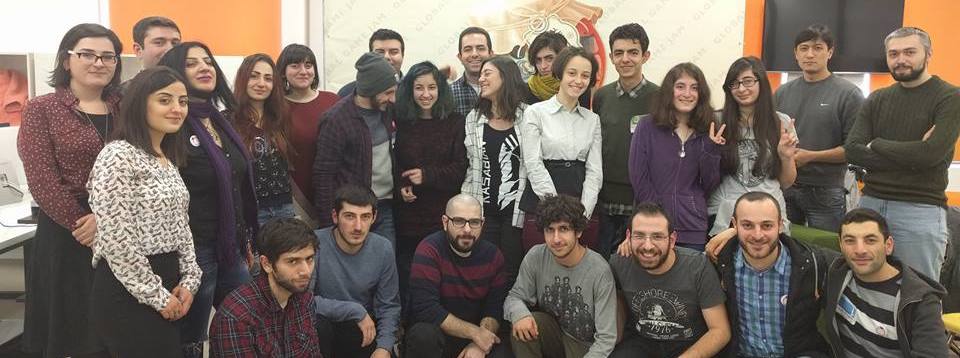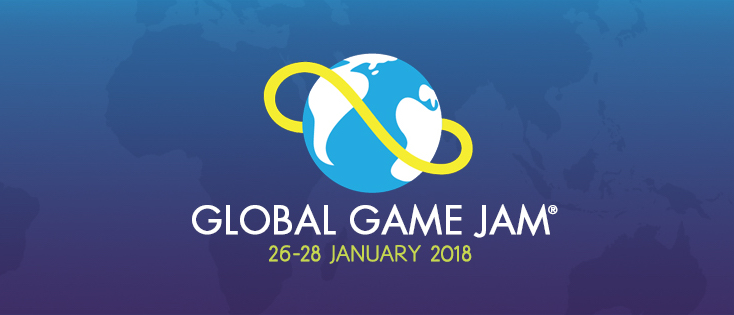Global Game Jam is one of the biggest international hackathons dedicated to the development of digital and non-digital games. The main objective is to create a game on a given topic within 48 hours. The theme is unveiled only on the day of the event. Participants can use any technology. We have learned about Global Game Jam from our friend Ara Shirinyan, who is a game designer in the USA. The idea was very motivating and we have decided to organize a Global Game Jam Hackathon in Armenia. It was a responsible decision because Global Game Jam 2017 was going to be held for the first time in Armenia. So, we have started to look for a place where we could hold this event. Here we came across with the first obstacle. We have done a lot of research and one of the first organizations who has quickly agreed to cooperate and share with us its experience and resources, was Union of Information Technology Enterprises (UITE). Two days before the event, we have found out that we were having problems with internet and heating. Aram Keryan – the operations manager of Entrepreneurship and Product Innovation Center (EPIC) of American University of Armenia (AUA) has kindly agreed to join us as an organizer and provide with comfortable space and all the…
Introduction Are you a company or an individual looking for a software development team? Are you contemplating outsourcing? It is well known that current educational institutions do not keep up with the ever-growing demand for skilled software engineers in the world, and the situation is predicted to get worse in years to come. Therefore, companies and individuals are relying more and more on finding software developers either by hiring them from overseas or outsourcing the projects. On the other hand, in spite of centralization of workforce in the technological and industrial centers such as the bay area of the Silicon Valley in the USA or the Waterloo Region in Canada, the skill gap is affecting those areas as well. Because of the scarcity of IT professionals the development costs are very high and increasing. Finally, given the dynamics of trends in the information technologies sector, it is reasonable to create a prototype of the product and test it in the market before committing to a long term product development. In this case spending a lot of resources on recruiting, hiring, and training developers can be less effective than approaching a formed team of experienced individuals. For the purpose of developing a prototype, a short term contracts with an outsourcing vendor also could save money on development costs. This also applied…
Introduction As a non-technical person have you ever wondered if your technical team is effective? Do you ask yourself if the speed of development and the number of bugs in your project are reasonable? Do you often doubt whether the team you are working with actually suits the needs of your project and should be trusted further? In this post we present to you the symptoms of non-professional software development teams. The points we make have been discussed in the community for a long time and there are multiple sources that we will refer to. We will also add some ideas from the knowledge we have gathered from both working in different companies on different software projects and while being a company and working with multiple customers and other teams. The Symptoms 1. Recurring bugs Recurring bugs are the ones that were once considered fixed but reappear in a later release. This usually happens if a newly implemented feature or a bug fix is somehow related to the area of the original bug. The reason for this phenomenon is related to the fact that while fixing the bug the engineer concentrated only on making the functionality work the way it is described in the expected result of the bug report. Instead, the responsible and professional developer would realize that there…
This year Global Game Jam (GGJ) game development hackathon was held for the 10th time in the world and for the second time in Armenia. GGJ is not a competition, it has no winners. Instead, it encourages open cooperation of participants, experimentation and innovation. It was held on January 26-28, as usual, during the last weekend of January. In Armenia it was held at American University of Armenia. The organizers of GGJ Armenia were Noor Games, AUA EPIC and UITE. This year the registrations were about twice more. As organizers, we were thinking how to make the event more exciting and effective this time. And we came up with several new ideas that we applied to the evet: We have invited experienced and well known specialists of Armenian game development industry to participate in the event as mentors. They had to help the jammers in the stage of game idea brainstorming as well as during the implementation of their ideas. Therefore, we had game designers, artists, 3D modelers and programmers as mentors. We have organized several tech talks right before the event started. This was a new element to stimulate knowledge sharing. Another reason for these talks was that we knew that this year we were having very experienced programmers who were participating in the event for the first time…
“Those who know, do. Those that understand, teach.” ― Aristotle Why did we train? Have you ever run a hiring cycle and all candidates appeared to have some important skill missing for your position? We have been there too and we are presenting our solution to you. For us at Noor Games learning is a constant process. It is one of the cornerstones of our company philosophy. We were planning to start regular courses for future game developers at some point during the growth of the company. The intent was to pass the knowledge we collected through our experience to the newer generation, so that they could start their careers with a much higher level of expertise than we did years ago. The main reason for that was our desire to contribute to the information technologies sector of Armenia. While these we considered to be just future plans, we were facing a very urgent issue, and the only way of solving it was to start the trainings immediately. That issue was hiring. To satisfy the growing demand of workforce for the projects we were working on we undertook a hiring cycle. For months we interviewed developers of various expertise and backgrounds with the main focus on C++ developers. We realized that the young and motivated did not have the minimum…





